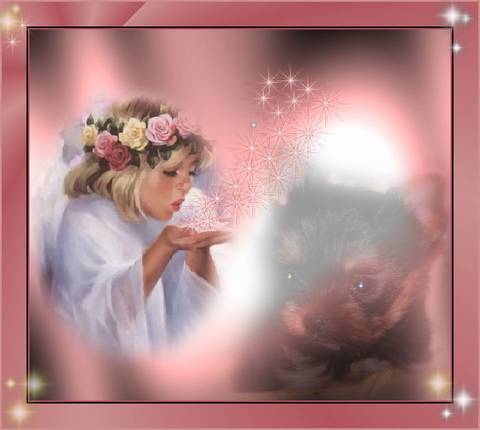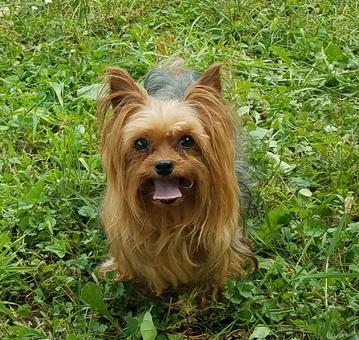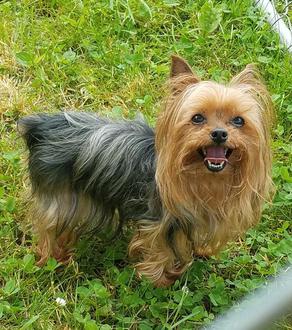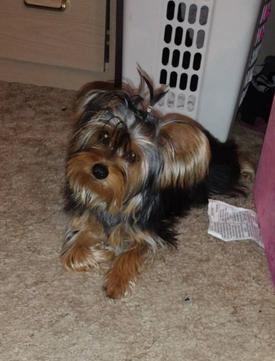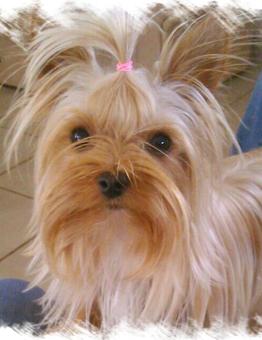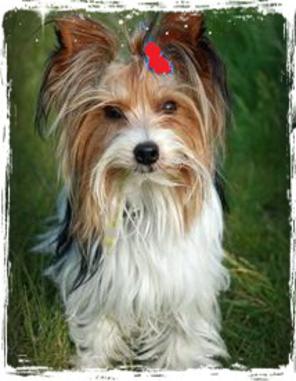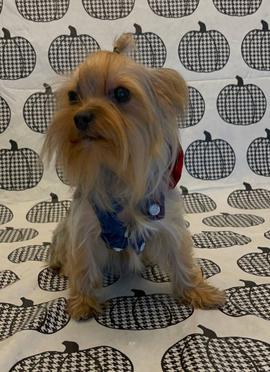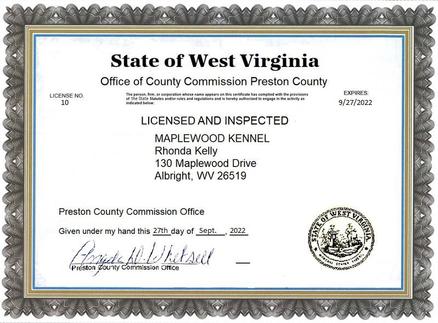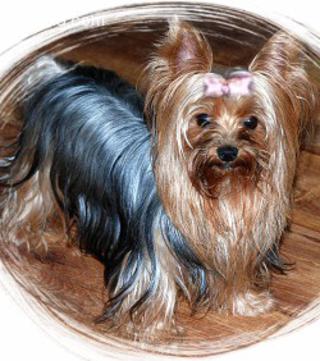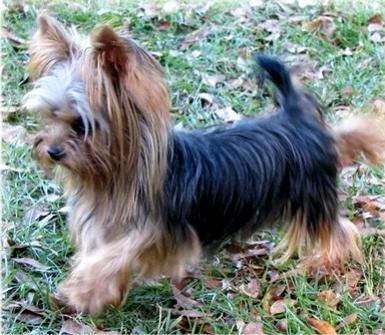yorkie, yorkie, yorkshire terrier, Yorkies, West Virginia, Yorkshire Terriers, Golden Retrievers, Maplewood Kennel, West Virginia, golden retriever Puppies, Breeder yorkie yorkie puppies, yorkie yorkie yorkie
Our Gents
Our Ladies
Jack
Yorkshire Terrier Info
The Yorkshire Terrier is an amazing breed. As wonderful as yorkies are, they are not for everyone. They are not a good choice for kids. Yorkies are very smart but can be a bit stubborn. They don't shed but are a little high maintenance. The yorkie needs much more care and attention than most other dog breeds. As the owner of a yorkie-or someone who is thinking about adopting one-you probably have questions about the yorkie breed. My goal is to give you the answers you need to care for your yorkie from puppyhood into adulthood. Complete with breed-specific health issues and behavioral traits that may arise, and tips for house training and grooming your yorkie.
According to registration statistics from the American Kennel Club, the Yorkshire Terrier traces to the Waterside Terrier, a small longish-coated dog, bluish-gray in color, weighing between 6 and 20 pounds. The Waterside Terrier was a breed formed by the crossing of the old rough-coated Black-and-Tan English Terrier (common in the Manchester area) and the Paisley and Clydesdale Terriers. It was brought to Yorkshire by weavers who migrated from Scotland to England in the mid-19th century.
The Yorkshire Terrier made its first appearance at a bench show in England in 1861 as a "broken-haired Scotch Terrier". It became known as a Yorkshire Terrier in 1870 when, after the Westmoreland show, Angus Sutherland reported in The Field magazine that "they ought no longer be called Scotch Terriers, but Yorkshire Terriers for having been so improved there."
The earliest record of a Yorkshire Terrier born in the United States dates to 1872. Classes for the breed have been offered at all shows since 1878. Early shows divided the classes by weight - under 5 pounds and over 5 pounds . Size, however, soon settled down to an average 7 pounds, resulting in only one class being offered in later shows.
While a Toy, and at various times a greatly pampered one, the Yorkshire is a spirited dog that definitely shows its terrier strain. The show dog's length of coat makes constant care necessary to protect it from damage, but the breed is glad to engage in all the roistering activities of the larger terrier breeds.
Temperament : The Yorkshire Terrier seems oblivious of its small size. It is ever eager for adventure and trouble. This little dog is highly energetic, brave, loyal and clever. Affectionate with its master, but sometimes suspicious of strangers. It can be aggressive to strange dogs and small animals. In other words, it has true Terrier heritage. They do best with older, considerate children. Yorkies are easy to train, although they can sometimes be stubborn. The breed is demanding and dependant and needs a lot of human attention. The Yorkie is an excellent watchdog, defending its territory in no uncertain manner. They can get snappish if surprised, frightened or over-teased, but are usually very sweet and loving. They can be difficult to housebreak. These little dogs should not be over-protected, for they may become neurotic. The Yorkie likes to bark, but it can easily be taught not to do so.
Colors : Puppies are born black & tan. They can change to Black & Gold, Black & Tan, Blue & Gold, Blue & Tan, Chocolate & Tan. It is the darker color on the body and tail, and the lighter elsewhere.
Sizes : Height: 6-7 inches (15-17½cm.) Weight: 7 pounds (3.2kg.)
Health Problems : Some Yorkies are prone to bronchitis and early tooth decay, poor tolerance to anaesthetic and delicate digestion. Falls or knocks can cause fractures of fragile bones. Collapsed Trachea, Reverse Sneezing and Patella LuXation. Bitches often have trouble delivering.
Exercise : The Yorkshire Terrier is a lively little warrior that does not need a lot of exercise. Although it will benefit from regular opportunities to run and play.
Living Conditions : The Yorkie is a good dog for apartment life. They are very active indoors and will do okay without a yard. The Yorkie is sensitive to the cold and prefers warm climates.
Life Expectancy : About 12-15 years
Maplewoods
Yorkshire Terriers
Archie
Patty
Mysha
Missy
Sage
Jemmie
Charlie
Peggy Sue
Ginger
Not for sale
Not for sale
E-MAIL US
Licensed & Inspected. Providing Healthy Happy puppies for 28+ years.
Purchasing
& Financing
Willie
WE NOW OFFER PUPPY FINANCING
CLICK ON THE LINK TO APPLY
11
2024
9/27/2025
Simon



